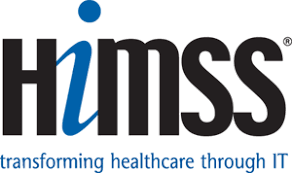With 2018 shaping up to be an interesting year for health policy, the Healthcare Information Management Systems Society (HIMSS) has outlined its priorities for the next several months.

HIMSS is among the many industry groups awaiting the Office of the National Coordinator for Health IT's forthcoming information blocking rule, and Jeff Coughlin, HIMSS' senior director of federal affairs, said at a press roundtable that he expects the group's Trusted Exchange Framework and Common Agreement to "set the stage" for that rule.
"It's a tough challenge" for ONC, HIMSS Vice President for Government Relations Tom Leary said at the briefing, because the definition of what exactly constitutes information blocking can vary so widely.
RELATED: ONC scheduled to release updates on certification, information blocking in April
As HIMSS officials eagerly anticipate that ONC directive, here are a few more priorities for HIMSS this year:
Potential budget cuts to AHRQ
For the second year in a row, the Trump administration has proposed collapsing the Agency for Healthcare Research and Quality into the National Institutes of Health. Of particular concern is how that change would impact AHRQ's portfolio of research on IT, which will have to compete for funding with other areas of focus that have dedicated funding streams.
Leary anticipates other groups will push back on the cuts to AHRQ, and that the program still has bipartisan champions on Capitol Hill.
"AHRQ is a small agency with a powerful mission," Coughlin said.
An opportunity to educate the new HHS secretary on health IT
During his confirmation hearings, newly installed Department of Health and Human Services (HHS) Secretary Alex Azar said health IT is a key focus for him, something HIMSS finds encouraging, Leary said. But the group also sees an "educational opportunity" in working with Azar on IT initiatives.
Coughlin said Azar comes into the job with a background in pharmaceuticals and prior experience at HHS, so he'll have a good working knowledge of central health IT issues. But Leary said HIMSS believes it can work with him to expand his understanding of "advancements made across the U.S."
"It's really an opportunity for us to enlighten the secretary," Leary said.
A "call to action" on interoperability
A lack of interoperability remains a major health IT policy issue. Coughlin said HIMSS has issued a "call to action" about interoperability, with HHS playing a leading role in facilitating that collaboration. HHS is working to expand interoperability internally, too.
HIMSS has opened its policy initiatives, like the interoperability call to action, to other groups, and has garnered some interest so far in the short time they've been doing so, Coughlin said.
"We don't want it to be just HIMSS," he said.
Continued focus on cybersecurity
Improving healthcare cybersecurity requires "recognizing that healthcare has unique requirements," Leary said. HIMSS is pushing for the National Institute of Standards and Technology's Cybersecurity Framework to be expanded in healthcare, while "layering over" the industry's needs.
The group is also continuing its push for HHS to raise its cybersecurity officer within the department so that person can have more freedom to communicate cyberthreats both internally and externally.
Leary added that HIMSS will be putting more focus this year on elevating the status of healthcare in the cybersecurity workforce. Many people looking for jobs in this area "think of healthcare last," so HIMSS will be working with colleges and universities and other stakeholders to change that trend.